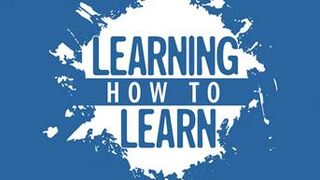Psychology
There Is a Post-Pandemic Need for Learning Psychology 2.0
We now face a brave new world of new best practices in Learning Psychology
Posted May 27, 2020 Reviewed by Hara Estroff Marano

Education literature and research is replete with books, articles, and reports on education. They include student performance, setting and measuring goals and objectives, strategies for teaching, methodology and assessing results of learner performance and more.
What is not sufficiently singled out is a specific focus on Learning Psychology. Yet, Alfred Adler, Carl Rogers, Abraham Maslow, Kurt Goldstein, William Glasser, Robert and Judith Wright, Stedman Graham, Frank Farley and other thought leaders known for their focus on self-actualization, individual growth, and transformation, personal enlightenment, and identity, growth and achievement as needs, have emphasized theories that are foundational in Learning Psychology. Yet, the subject of Learning Psychology remains underemphasized.
My conclusions are formed from research and a lifelong career in education working with thought leaders to study and apply Learning Psychology. This is a summary of some of my experiences, including interviews and research on those whose contributions to Learning Psychology are important for post-COVID-19 progress in learning.
Successful within the American Psychological Association, the American Education Research Association and other organizations are specialty divisions such as APA Division 15, Education Psychology and APA Division 16, School Psychology. Why then, is there no division whose explicit name and mission is dedicated to the specialty of Learning Psychology?
Anxiety in human behavior can be either a positive or a negative. Awakening in the morning with positive anxiety ignites the motivation to do something to address the day. Anxiety can convert to motivation. Motivation is an energizing force that fuels an individual to address the needs of the day.
Abraham Maslow, in his 1943 article “A Theory of Human Motivation,” emphasized self-actualization as a motivation (Maslow, 1943). Maslow said individuals have needs that must be satisfied to lead to self-actualization.
While a doctoral student at UCLA, I was privileged to participate in a seminar with Abraham Maslow. In the early 1970s, I worked with psychologist Carl Rogers and psychiatrist William Glasser, who were principal consultants at KOCE-TV and Coastline College, producing the successful telecourse in psychology titled, As Man Behaves.
I’ve worked extensively with Robert and Judith Wright as they developed breakthrough theories of transformational leadership (Wright, 2012b) and I consulted with Stedman Graham as he formed his theories of identity leadership that are shared widely today (Graham, 2019). I learned in depth about transformation and identity development and social-emotional intelligence that form the theoretical foundation for Learning Psychology from all of these key theorists in Learning Psychology. Each recognizes that (1) individuals are at the center of the learning experience and (2) Learning Psychology is fundamental to the nature of learning.
Summary:
This article synthesizes and shares what I have learned as a teacher, counselor, therapist and learning psychologist. It is intended to motivate other professionals to actively define and describe Learning Psychology, and offer recommendations supporting increased attention and understanding of how learning occurs in the context of Learning Psychology.
Specific subspecialties in educational psychology include teaching psychology, media psychology and learning psychology. However, when reviewing education programs across colleges and universities, learning psychology as a subject is conspicuously absent. Post-COVID-19, with more emphasis on all facets of teaching and learning, learning psychology should now move to the top of the learning agenda. As after 9/11, our post-COVID-19 world has been permanently altered. We will never again be quite the same. Our approaches to teaching and learning must adapt and change. Adaptability is a primary factor in teaching and learning.
Conclusions:
- Educational Psychology is an overarching inclusive subject having a series of subordinate special areas in psychology that directly affect learning and therefore, personal development.
- Educational psychology includes research methodology, teaching psychology, media, and technology psychology, and learning psychology.
- Learning psychology is personal, transformational, evolving from a motivation to learn, resulting in a measurable change in behavior.
- Theories in learning psychology include attention, persuasion, accurate empathy, psychovisualization, repetition, habit development, perception, addiction, color, sound, trying, learned helplessness, success, bias, and many more.
- Synesthesia, semiotics, and semantics bring the senses together. They include color, sound, touch, language perception, iconography, and symbolism, together in the learning paradigm (Luskin, 2019).
- Learning psychology should be more extensively researched, refined, and included in all degree and certificate programs in education.
- Degree concentrations in learning psychology should be included at the masters and doctoral levels.
- Learning psychology should increasingly be (1) a subject for research, (2) taught more extensively in teacher education, and (3) in personal development programs. Learning psychology best practices should be widely included in learning literature.
Recommendations:
- The American Psychological Association (APA), the American Psychological Society (APS), and the American Educational Research Association (AERA) should encourage establishment of learning psychology as a specific sub-specialty.
- The APA, APS, and AERA should support the establishment of divisions in learning psychology.
- Colleges and universities should include specific study of learning psychology in their education, psychology, and related teacher education degree programs.
- Faculty practicing in the field of learning should research and publish in learning psychology as a specific discipline.
- Organizations with a mission or goal to enhance learning should emphasize the characteristics and best practices in learning psychology.
- The Department of Education should support expanded research in learning psychology.
- Federal and foundation funds should be awarded in support of projects that advance knowledge and understanding of learning psychology.
There is a distinct difference between teaching psychology, as psychology applied by teachers, parents, coaches and mentors in fostering learning, and the personal learning that includes learning psychology experienced by an individual engaged in the process of personal growth and transformation. Understanding and advancing learning psychology and its new applications is particularly important in the post-COVID-19 world of learning.
Luskin Learning Psychology Series No. 51
Special thanks to: Toni Luskin, Ph.D., for editorial and publishing assistance. Robert Wright, Ed.D.,(CEO) & Judith Wright, Ed.D., (President), Wright Graduate University, Frank Farley, Ph.D., Past President, American Psychological Association (APA) and American Educational Research Association (AERA) and Stedman Graham, education, personal, and corporate development thought leader for providing insights and encouragement in emphasizing the importance of learning psychology.
References
Graham, S. (2019). Identity Leadership (1 ed.). Chicago: Center Street.
Luskin, B.J. (2019). Synesthesia, Semiotics, Semantics and How We Learn. [Media Psychology]. Psychology Today, 46(Luskin Learning Psychology).
Maslow, A.H. (1943). A theory of human motivation. [Psychology]. Psychological Review, 50(4), 370-396. doi: 10.1037/h0054346
Wright, J., Wright, R. (2012a). Foundations of Lifelong Learning and Personal Transformation (1 ed.). Chicago: Evolating Press.
Wright, J., Wright, R. (2012b). Transformed!: The science of spectacular living (1 ed.). Chicago: Turner.




